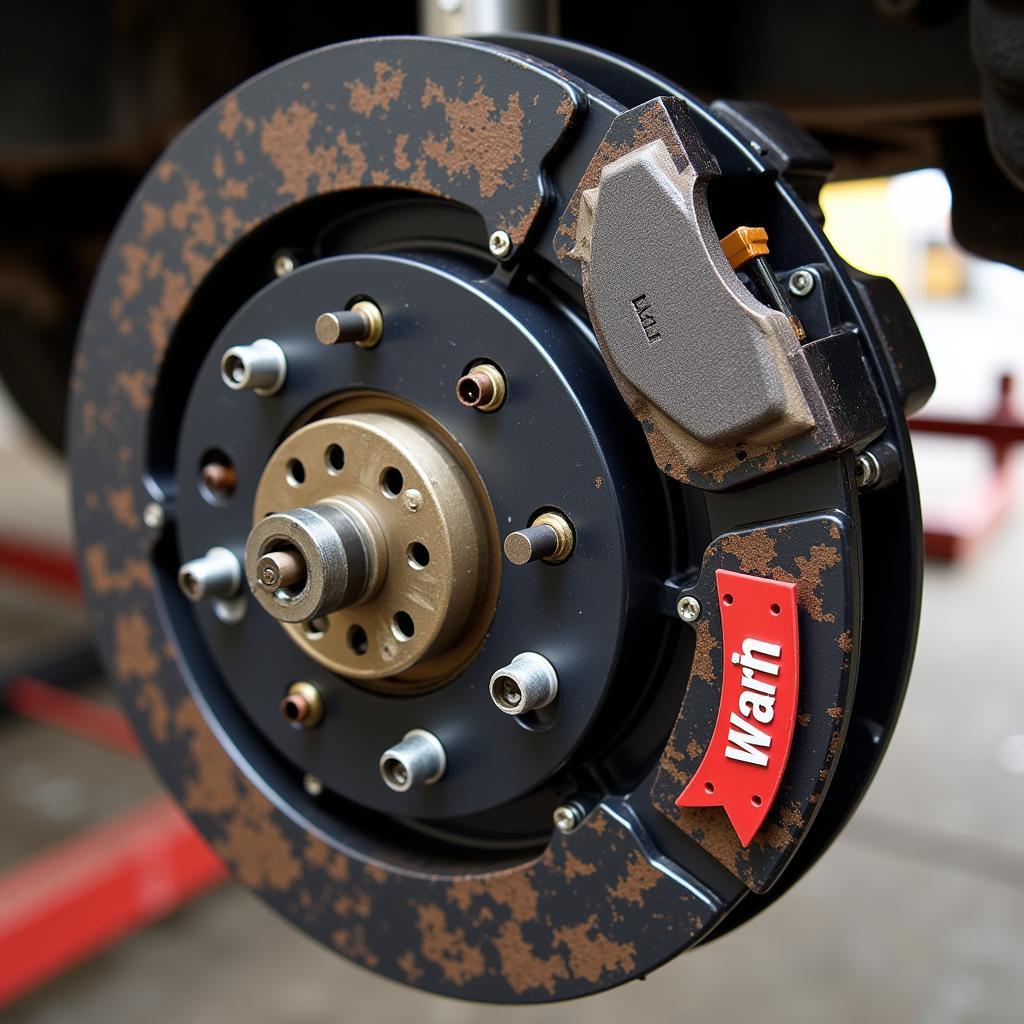A car battery automatically discharging can be a frustrating experience. Whether it’s a slow drain over time or a sudden loss of power, this issue can leave you stranded and searching for answers. This article will explore the common causes of car battery discharge, provide troubleshooting steps, and offer solutions to get your vehicle back on the road. golf cart batteries dying fast
Why Does My Car Battery Keep Dying?
Several factors can contribute to a car battery automatically discharging. Identifying the root cause is crucial for implementing the correct solution.
Parasitic Drain: The Silent Battery Killer
A parasitic drain occurs when electrical components continue to draw power even after the car is turned off. This slow but constant drain can deplete your battery over time. Common culprits include faulty interior lights, glove box lights, door switches, and aftermarket accessories like stereos or alarms.
Faulty Alternator: Failing to Recharge
The alternator is responsible for recharging the battery while the engine is running. A malfunctioning alternator can fail to provide sufficient charge, leading to a gradual discharge.
Extreme Temperatures: Affecting Battery Performance
Extreme temperatures, both hot and cold, can impact battery performance. Heat can accelerate the chemical reactions within the battery, leading to faster discharge. Cold weather can thicken the battery’s electrolyte, making it harder for the battery to deliver power.
 Car Battery in Cold Weather
Car Battery in Cold Weather
Old Age: The Inevitable Decline
Like any other component, car batteries have a limited lifespan. As a battery ages, its capacity to hold a charge diminishes, making it more susceptible to discharging.
How to Troubleshoot a Car Battery Automatically Discharge
Troubleshooting a car battery discharge involves a systematic approach.
Visual Inspection: Checking for the Obvious
Start by visually inspecting the battery for any signs of damage, corrosion, or loose connections. Clean the terminals and ensure they are tightly secured.
Battery Test: Measuring the Charge
Use a multimeter or battery tester to check the battery’s voltage. A fully charged battery should read around 12.6 volts. A lower reading indicates a discharged battery.
Parasitic Drain Test: Identifying the Culprit
If you suspect a parasitic drain, perform a parasitic drain test using a multimeter. This involves disconnecting a battery cable and measuring the current draw with the ignition off. A reading above 50 milliamps typically indicates a parasitic drain. You can then systematically remove fuses to isolate the circuit causing the drain.
Alternator Test: Checking Charging Performance
Have the alternator tested to ensure it’s functioning correctly and providing sufficient charge to the battery. charge a flat car battery
Solutions for Car Battery Discharge
Once you’ve identified the cause, you can implement the appropriate solution.
Addressing Parasitic Drains: Eliminating the Power Leak
Repair or replace any faulty components causing a parasitic drain. This might involve replacing a faulty light switch, repairing a damaged wire, or removing an aftermarket accessory. battery charger that will charge a dead battery
Replacing a Faulty Alternator: Restoring Charging Capacity
If the alternator is faulty, it needs to be replaced. A new alternator will ensure the battery is properly recharged while the engine is running. charger for dead car battery
Dealing with Extreme Temperatures: Protecting Your Battery
In extreme temperatures, consider using a battery blanket in cold weather or parking in a shaded area during hot weather to protect your battery.
Replacing an Old Battery: Extending Battery Life
If your battery is old and nearing the end of its lifespan, replacing it is the best course of action. eco idle battery
Conclusion
A car battery automatically discharging can stem from various reasons, including parasitic drains, alternator issues, and extreme temperatures. By following the troubleshooting steps outlined in this article and implementing the appropriate solutions, you can resolve the problem and prevent future occurrences of a dead battery. Regular maintenance and addressing these issues promptly will help ensure your car starts reliably every time.
FAQ
-
How long does a car battery typically last?
A car battery typically lasts between three and five years. -
Can I jump-start a car with a completely dead battery?
While you can attempt to jump-start a car with a completely dead battery, it might not always be successful. -
What are some signs of a failing alternator?
Dim headlights, flickering interior lights, and a warning light on the dashboard are all potential signs of a failing alternator. -
How can I prevent my car battery from discharging?
Regularly driving your car, limiting the use of accessories with the engine off, and ensuring all electrical components are functioning correctly can help prevent battery discharge. -
Is it safe to drive with a bad alternator?
Driving with a bad alternator is not recommended as it can lead to a complete battery failure and leave you stranded. -
How much does a new car battery cost?
The cost of a new car battery can vary depending on the type and size of the battery, but typically ranges from $50 to $200. -
Can a parasitic drain damage other car components?
Yes, a significant parasitic drain can put a strain on other electrical components and potentially damage them over time.

